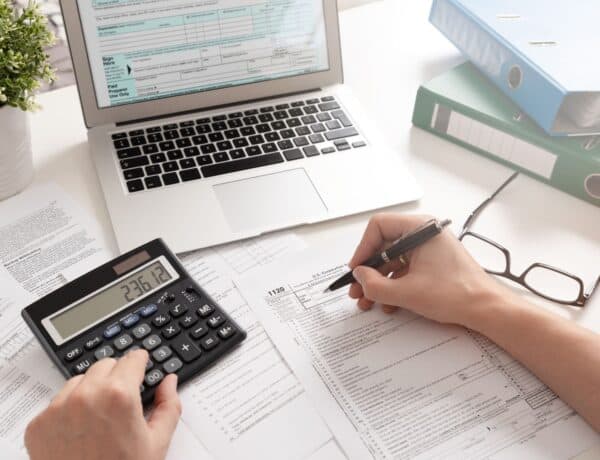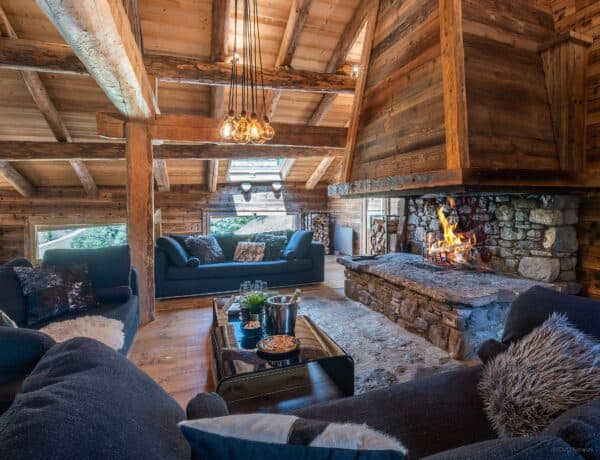As the world becomes increasingly aware of the environmental challenges we face, travellers are seeking more sustainable accommodation options. If you own a holiday rental property, making it eco-friendly not only aligns with the growing demand for responsible tourism but also benefits your bookings. In this guide, we’ll explore seven effective ways to make your holiday rental property in the Alps more eco-friendly.
In this post, we look at the variety of ways to make your holiday rental property more eco friendly and what you can do to run a more sustainable business. Read on to find out how you can make a difference…
Embrace sustainable energy sources
Solar power integration
Harnessing the power of the sun is a game-changer for eco-friendly holiday rentals. Solar panels can provide clean energy for your chalet, reducing its reliance on traditional power sources. This not only cuts down on carbon emissions but also saves you money in the long run.
In mountainous regions like the French Alps, where access to electricity can be challenging, solar power is a viable solution. While the initial investment may seem substantial, it pays off in the form of reduced energy bills and a smaller carbon footprint.
How much do solar panels cost?
According to the French energy management agency ‘ADEME’, the cost of solar panels is around 3,000€ to 4,500€ per kilowatt of power created. And, as most solar panels generate around 3k/W of power, this means the cost of the panels themselves is between 9,000€ to 13,000€. For 6 k/W of power, you can expect to pay between 16,000€ and 19,000€.*
*Source: French-property.com
How much can you save with solar power?
The amount of money you can save on your electricity bills by installing solar panels can vary widely depending on several factors. Here are some general considerations:
- System size: The larger the solar panel system, the more electricity it can generate. A bigger system can potentially offset a larger portion of electricity consumption.
- Sunlight availability: The amount of sunlight a region receives is a crucial factor. Southern regions of France generally receive more sunlight than northern areas, making solar panels more efficient in those regions.
- Electricity consumption: Homes with higher electricity consumption can potentially save more with solar panels because they can offset a larger portion of their usage.
- Government incentives: Government incentives and policies can significantly impact savings. Some regions offer feed-in tariffs, where homeowners are paid for excess electricity they feed back into the grid. Others use net metering, which allows homeowners to offset their bills with excess energy production.
- Cost of electricity: The cost of electricity from the grid varies across France. Higher electricity rates can result in more significant savings from solar panel installations.
- Upfront costs: The initial investment in solar panels can be substantial, but it is typically recouped over time through energy savings.
- Maintenance costs: Solar panels require minimal maintenance but may have occasional upkeep expenses.
To get an accurate estimate of potential savings, consider consulting with local solar installation companies or using online solar calculators. These tools can factor in specific details about the property and location to provide a more precise estimate of the financial benefits of installing solar panels.
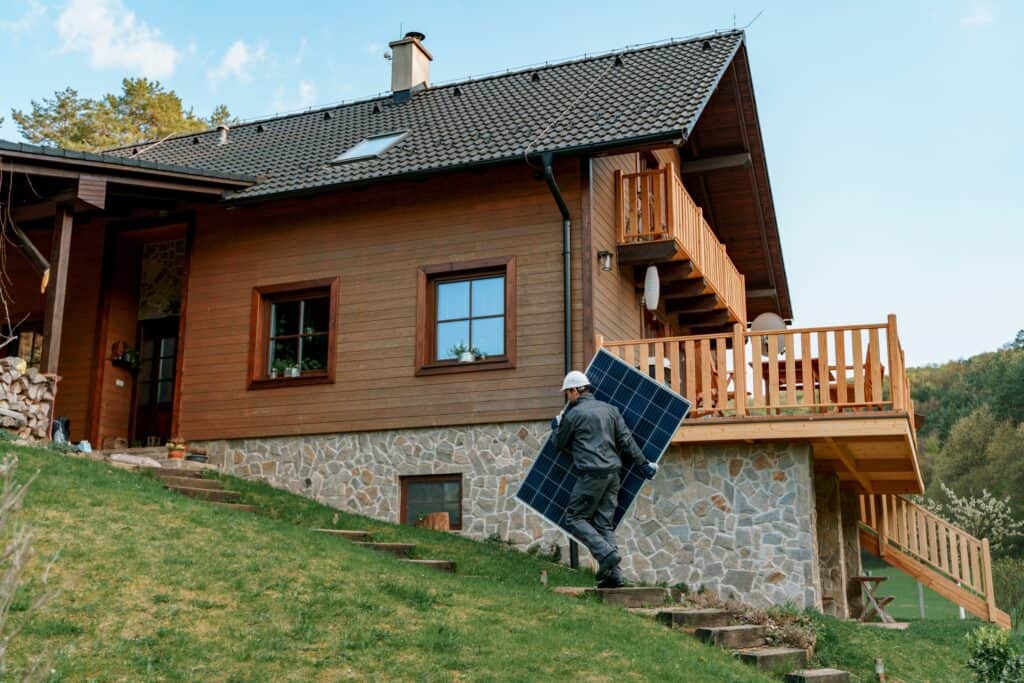
Optimise water usage
Low-flow fixtures and rainwater harvesting
Water conservation is crucial, especially in regions with varying rainfall patterns. Installing low-flow faucets, showerheads, and toilets can significantly reduce water consumption without compromising guest comfort.
How low-flow fixtures save water
- Reduced flow rate: By limiting the flow of water, low-flow fixtures use significantly less water per use compared to traditional fixtures.
- Water pressure: The introduction of air into the water stream helps maintain adequate water pressure, so users still experience a satisfying shower or sufficient water flow from faucets.
- Water savings: Low-flow fixtures can result in substantial water savings over time, reducing both water consumption and utility bills.
Rainwater harvesting
Rainwater harvesting is the process of collecting and storing water for non-potable purposes. A practical and eco-friendly approach to water management, it not only conserves water but reduces dependence on traditional water sources. Overall, it contributes to a more sustainable and resilient water infrastructure, benefiting the environment.
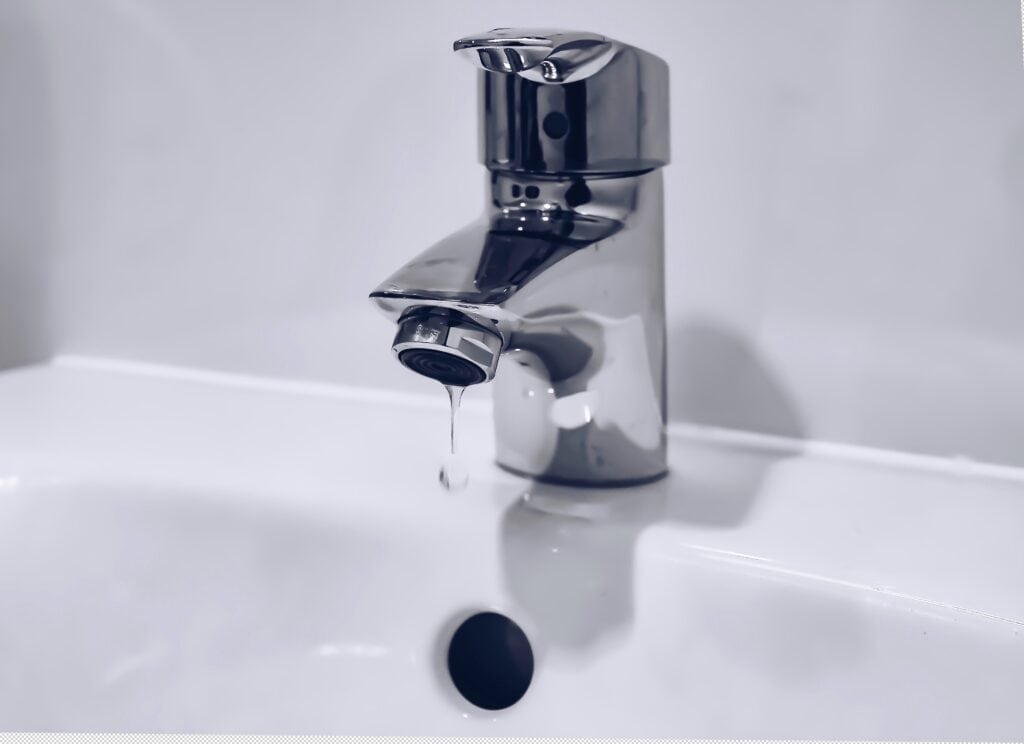
Implement waste reduction measures
Recycling
Always encourage responsible waste management within your property. Start by providing clearly labelled recycling stations to help guests sort their waste efficiently. You can go one step further by sharing the environmental benefits of recycling and providing statistics on waste reduction achieved through these efforts.
Make sure that guests are aware of local recycling guidelines by displaying instructions in line with your commune’s website. Guidelines may differ from where they live, so this is key!
Composting
Additionally, composting is another excellent way to reduce landfill contributions, as well as enrich the soil you use to maintain your garden.
Here’s a quick guide to setting up a composting system at your rental property:
Setting up a composting system in your garden:
- Purchase a backyard composting bin: This is the most common method. You’ll need a composting bin or pile in your garden.
- Gather materials:
- Browns: These are carbon-rich materials like dried leaves, straw, cardboard, and newspaper. They provide structure and balance to the compost.
- Greens: These are nitrogen-rich materials like kitchen scraps (fruit and vegetable peels, coffee grounds) and grass clippings. They supply essential nutrients.
- Water: Ensure your compost pile is consistently moist, like a wrung-out sponge.
- Layer materials: Alternate layers of browns and greens in your compost pile or bin. Start with a layer of browns, add a layer of greens, and repeat.
- Aerate and mix: Regularly turn or aerate the compost pile to provide oxygen to microorganisms. This speeds up decomposition. A pitchfork or compost aerator can help with this.
- Maintain proper conditions: Keep the compost pile moist but not soggy, and ensure good aeration. Maintain a balance of browns and greens, and avoid adding meat, dairy, or diseased plants to your compost.
- Harvest compost: Depending on the method and conditions, compost can be ready in a few months to a year. When it looks like dark, crumbly soil and has an earthy smell, it’s ready to use.
- Use compost: Spread the finished compost in your garden beds or use it as potting soil. It’s an excellent amendment for any soil type.
If you do decide to install a compost bin at your property, then make sure to educate your guests on how to use it. Additionally, if someone manages your property on your behalf, you’ll need to run them through how it works and add this to their regular tasks.
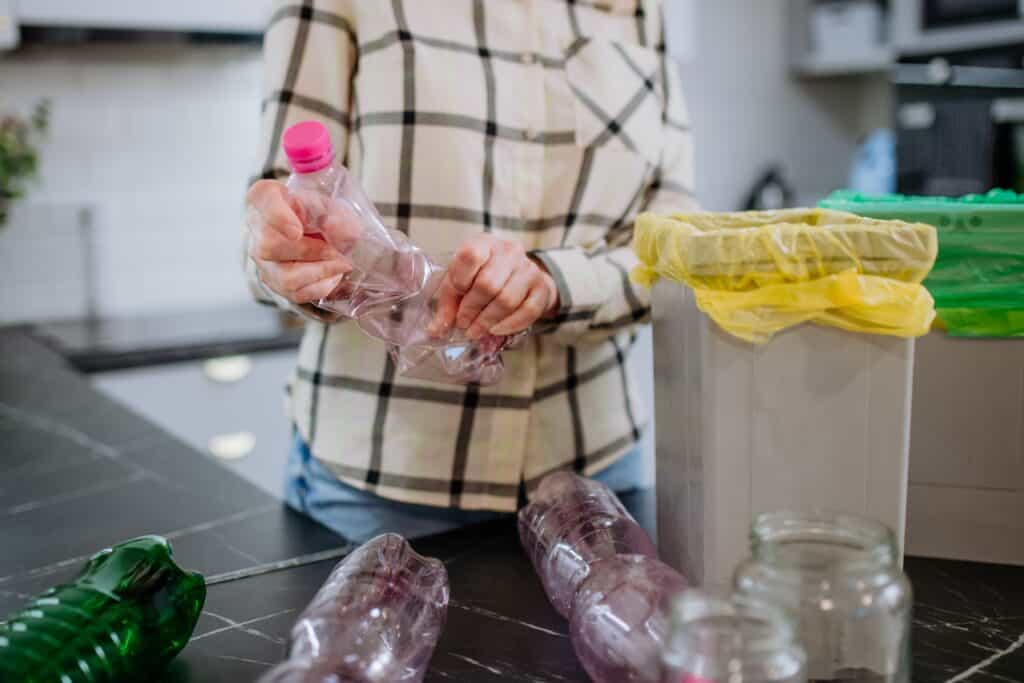
Embrace sustainable materials
Eco-friendly furnishing choices
The materials you choose for your chalet’s interior can make a substantial difference. Here are some ideas of materials to use to reduce your environmental impact:
- Bamboo furniture:
- Sustainability: Bamboo is a rapidly renewable resource because it grows much faster than hardwood trees. It can be harvested without causing long-term harm to the environment.
- Positive impact: Bamboo furniture production consumes fewer resources and reduces deforestation, which helps protect natural habitats and biodiversity.
- Reclaimed wood furniture:
- Sustainability: Reclaimed wood is salvaged from old structures, barns, or other sources. Using reclaimed wood reduces the demand for virgin timber, conserving forests.
- Positive impact: It prevents old wood from ending up in landfills and gives it a new purpose, reducing waste.
- Recycled metal furniture:
- Sustainability: Recycled metal, such as reclaimed steel or aluminium, reduces the energy and resources needed to create new metal products.
- Positive impact: It reduces the environmental footprint of metal production and helps lower greenhouse gas emissions.
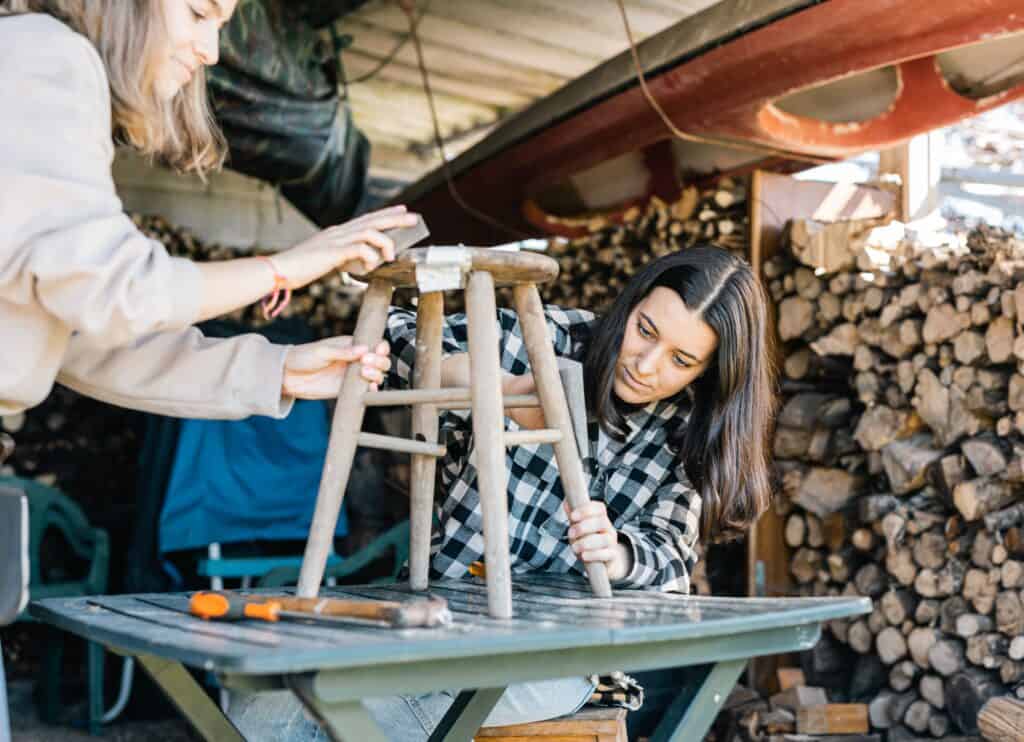
Sustainable textiles, upholstery, and decor
- Organic fabrics:
- Sustainability: Organic textiles, like organic cotton or hemp, are grown without synthetic pesticides or fertilisers, promoting healthier soil and reducing chemical runoff.
- Positive impact: Organic farming practices are less harmful to the environment and promote biodiversity.
- Recycled textiles:
- Sustainability: Fabrics made from recycled materials, such as PET (polyethylene terephthalate) bottles, divert waste from landfills and reduce the need for virgin resources.
- Positive impact: Recycling textiles conserves energy and reduces the carbon footprint of textile production.
- Low-VOC paints and finishes:
- Sustainability: Low-VOC (volatile organic compound) paints and finishes emit fewer harmful chemicals into the air, improving indoor air quality.
- Positive impact: They contribute to healthier living spaces and reduce air pollution.
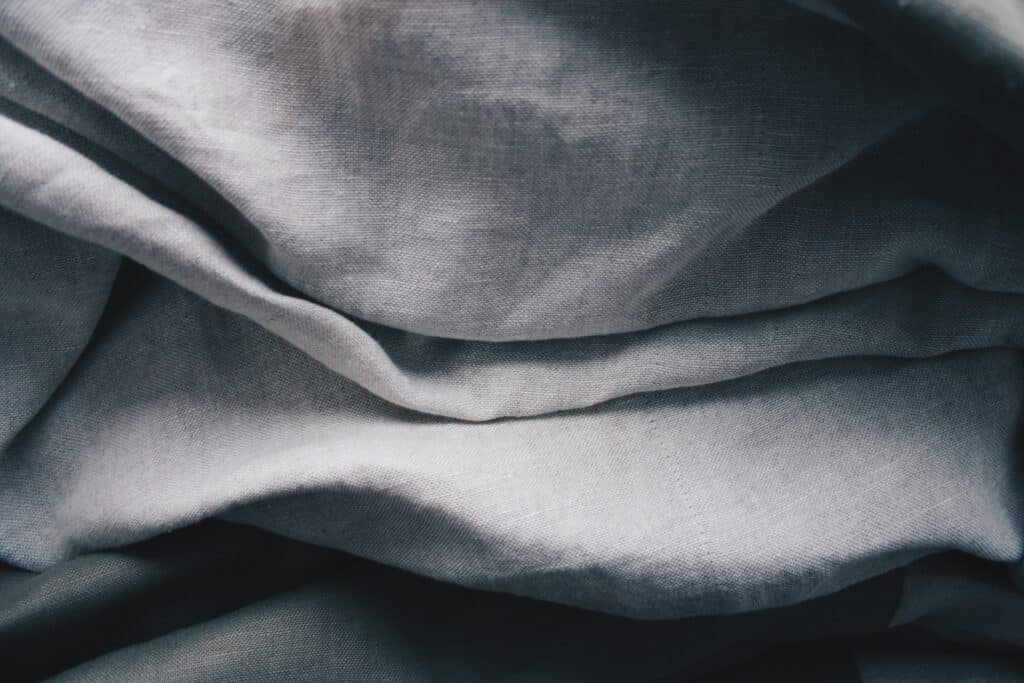
Heat your property efficiently
Programmable thermostats and insulation upgrades
Programmable thermostats are an excellent addition to any property, including alpine chalets, for optimising heating and cooling cycles. Here’s how they work and their benefits:
- Functionality: Programmable thermostats allow you or your property manager to set temperature schedules. This means you can program the thermostat to automatically lower the temperature when guests are away or asleep and raise it when they are active and present.
- Energy efficiency: By automating temperature adjustments, programmable thermostats help conserve energy. They prevent unnecessary heating or cooling when it’s not needed, reducing energy consumption and associated costs. In fact, according to the Department of Energy, programmable thermostats can lead to a 5 to 15% reduction in energy use.
- Comfort: Guests can enjoy a comfortable temperature when they are in the chalet without having to constantly adjust the thermostat manually.
- Data tracking: Some advanced programmable thermostats provide data on energy usage and temperature trends, enabling you to make informed decisions about energy efficiency.
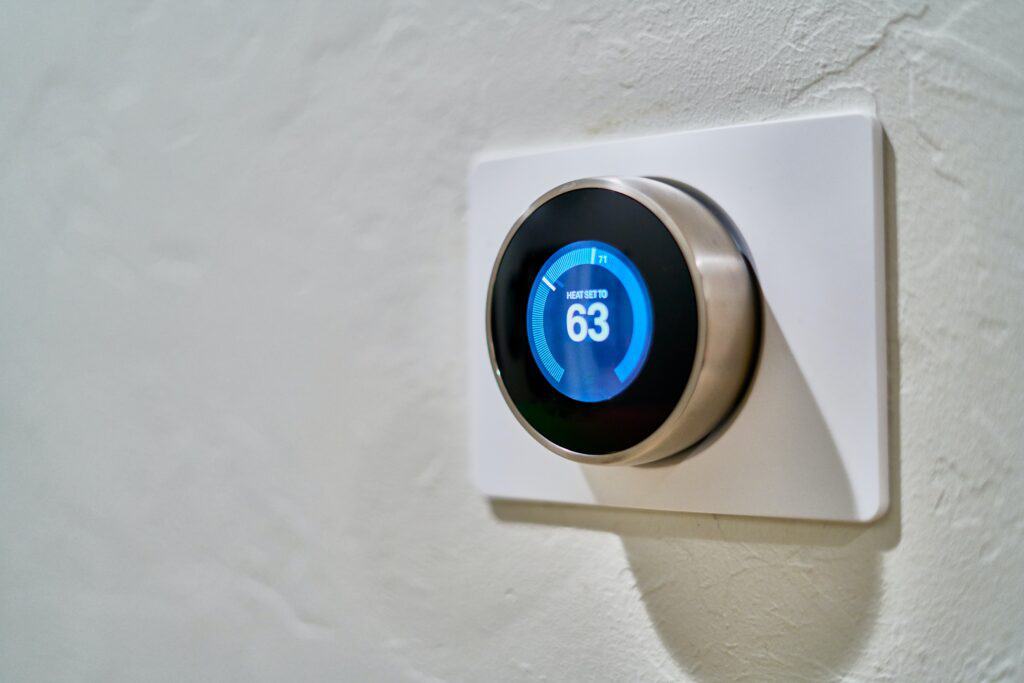
Proper insulation is paramount in alpine chalets for several reasons:
- Temperature regulation: Insulation acts as a thermal barrier, helping to maintain a consistent and comfortable indoor temperature. In alpine regions, where temperatures can be extreme, insulation prevents heat loss in the winter and heat gain in the summer.
- Energy efficiency: Well-insulated chalets require less energy for heating and cooling. This not only reduces energy bills but also minimises the carbon footprint of the property. According to Insulation Express, wall insulation can help you cut the amount of energy you need to cool and heat your home by around 25% and floor insulation can save around 20%.
- Condensation prevention: Insulation helps prevent condensation on interior surfaces, which can lead to mould and moisture-related problems. This is especially important in colder, high-humidity alpine environments.
- Guest comfort: Proper insulation ensures that guests stay comfortable regardless of the outdoor weather conditions, enhancing their overall experience.
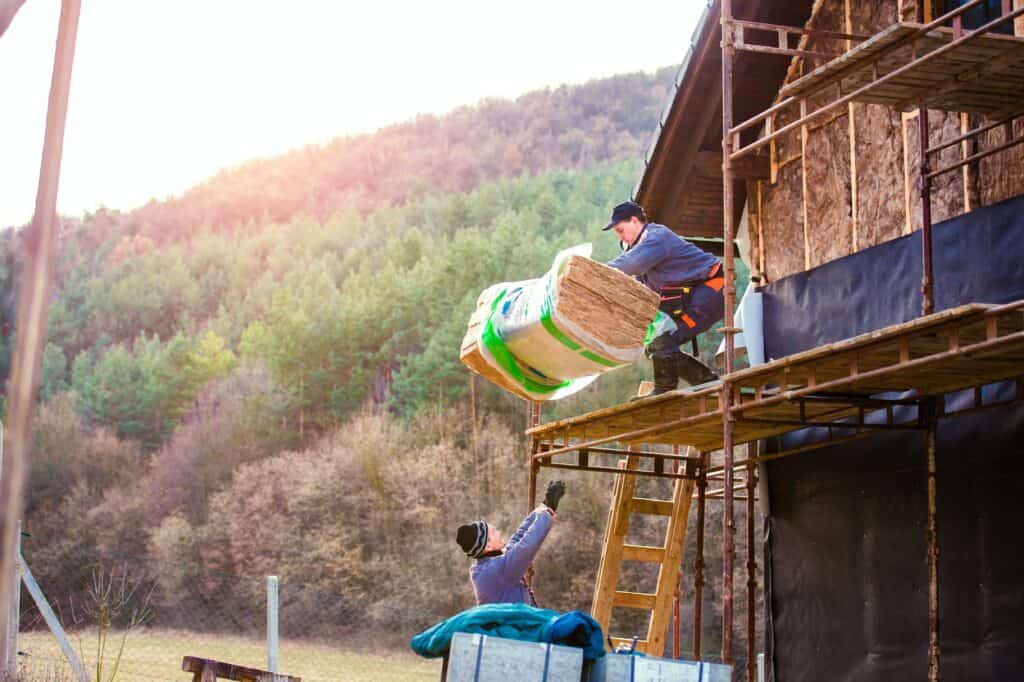
Invest in eco-friendly appliances
Investing in eco-friendly appliances for your holiday rental property is not only a responsible choice but also a smart long-term investment.
These appliances are designed to be energy-efficient and environmentally conscious, offering several benefits. Firstly, they significantly reduce energy consumption, leading to lower utility bills. For instance, replacing traditional incandescent bulbs with energy-efficient LED lighting can cut down electricity usage by up to 80%. Similarly, appliances like high-efficiency washing machines and dishwashers consume less water, which is not only eco-friendly but can also lead to reduced water bills.
By incorporating these eco-conscious appliances into your rental property, you not only contribute to a greener future but also enhance the property’s appeal to environmentally-conscious travellers who prioritise sustainability in their travel choices.
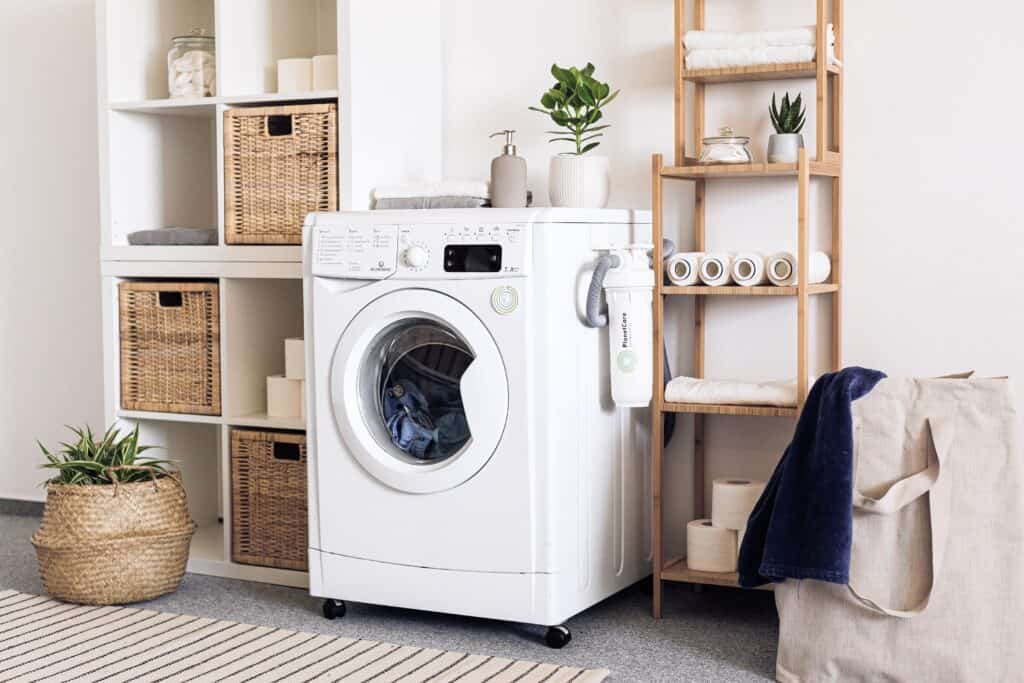
Eco-friendly landscaping: Natural beauty and sustainability
Native plants and xeriscaping
The outdoor spaces at your chalet contribute to its overall appeal, and the approach you take to landscaping is equally important. Eco-friendly landscaping enhances the property’s visual appeal while reducing water usage and maintenance costs.
Xeriscaping is a water-efficient landscaping solution designed to conserve water and promote sustainable practices, particularly in regions with limited water resources or frequent drought conditions.
And, luckily, alpine plants are an ideal choice for xeriscaping and low-maintenance landscaping because they naturally thrive in challenging and arid conditions.
Some popular alpine plants include:
- Saxifraga (Saxifrages)
- Sempervivum (Houseleeks or Hen and Chicks)
- Dianthus (Alpine Pinks)
- Gentiana (Gentians)
- Silene acaulis (Moss Campion)
- Androsace (Rock Jasmines)
- Armeria maritima (Thrift or Sea Pink)
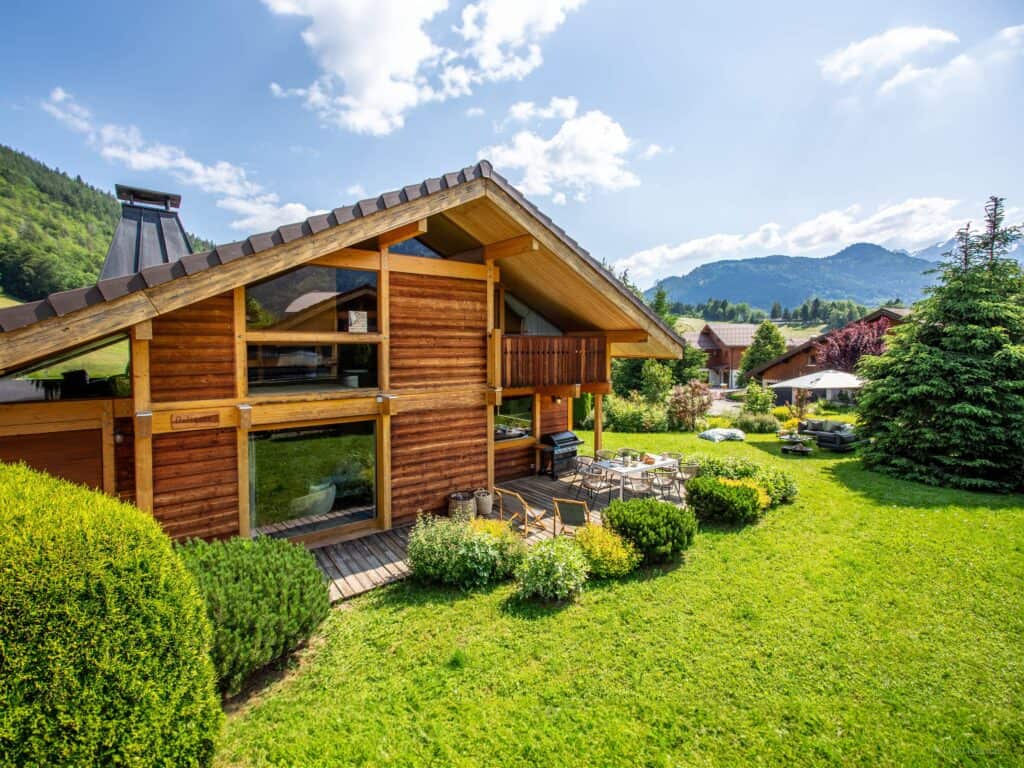
Provide eco-friendly products
Cleaning products
Eco-friendly cleaning products are formulated to minimise the use of harsh chemicals and toxins, making them safer for both the environment and human health. And by choosing eco-friendly cleaning products, you reduce the release of harmful pollutants into the air and water systems.
Toiletries
Incorporating eco-friendly toiletries is a thoughtful step toward responsible hospitality and environmental sustainability. These eco-conscious toiletries are typically made with natural, biodegradable ingredients, minimising the impact on aquatic ecosystems and reducing plastic waste.
By providing guests with amenities like organic soaps, shampoos, and conditioners in refillable or recyclable packaging, you demonstrate a commitment to reducing single-use plastics and supporting eco-friendly practices.
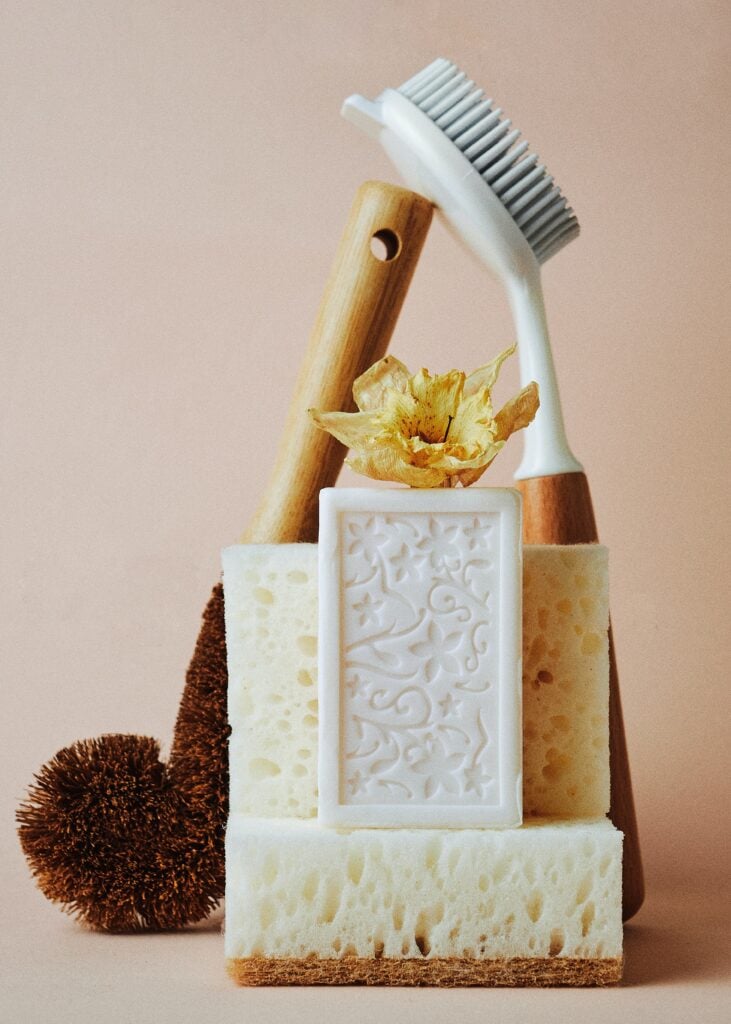
Install an electric car charging point
Offering an electric car charging point at your holiday rental property is a forward-thinking choice that comes with several advantages.
Firstly, it caters to the growing number of eco-conscious travellers who prioritise sustainable transportation. By providing a convenient charging solution, you encourage the use of electric vehicles, which significantly reduce greenhouse gas emissions and air pollution. This not only aligns your property with eco-friendly values but also demonstrates your commitment to reducing the carbon footprint associated with travel.
Additionally, it sets your rental apart from others, attracting a niche group of environmentally-conscious guests who appreciate and value eco-friendly amenities.
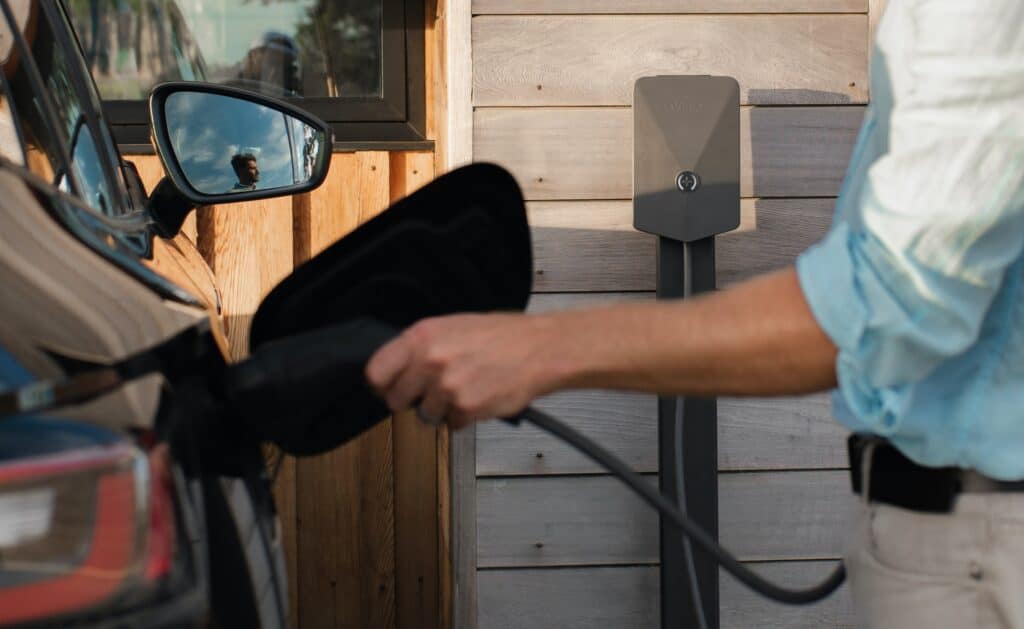
Green guest guidelines: Educate and engage
It’s important to engage guests in your eco-friendly efforts by educating them and encouraging them to take part in your practices. Here are some ideas for initiatives:
- Provide a guest handbook that outlines eco-conscious practices during their stay;
- Encourage responsible energy and water usage and highlight the collective impact of guests’ efforts in reducing the property’s carbon footprint;
- Kindly ask guests to only request a towel or linen change if absolutely necessary;
- Encourage guests to shop locally, recommend markets in the area and provide reusable shopping bags;
- Recommend sustainable methods of transport in your pre-arrival communications such as car-sharing and train travel.

Summary
Transforming your holiday rental property in the French Alps into an eco-friendly retreat is not only a responsible choice for the environment but also a strategic move to attract eco-conscious travellers.
By following the advice and tips in this guide, you can make a positive impact while enhancing your property’s appeal. Embracing eco-friendliness isn’t just a trend; it’s a commitment to a better future for all.
At OVO Network, we support owners in all aspects of their business, helping them build strong relationships with loyal guests. From guest communication to marketing, revenue/booking management, photography and more – our experts can help turn your chalet business into a success.
Interested in learning more about our solution? Head over to our website to discover more or arrange a call with one of our experts today.
Finally, don’t forget to sign up for our Industry Insider Newsletter and be the first to receive tips on running your holiday rental business, expert opinions and the latest industry news.
If you enjoyed reading this article, we think you’d also like:
